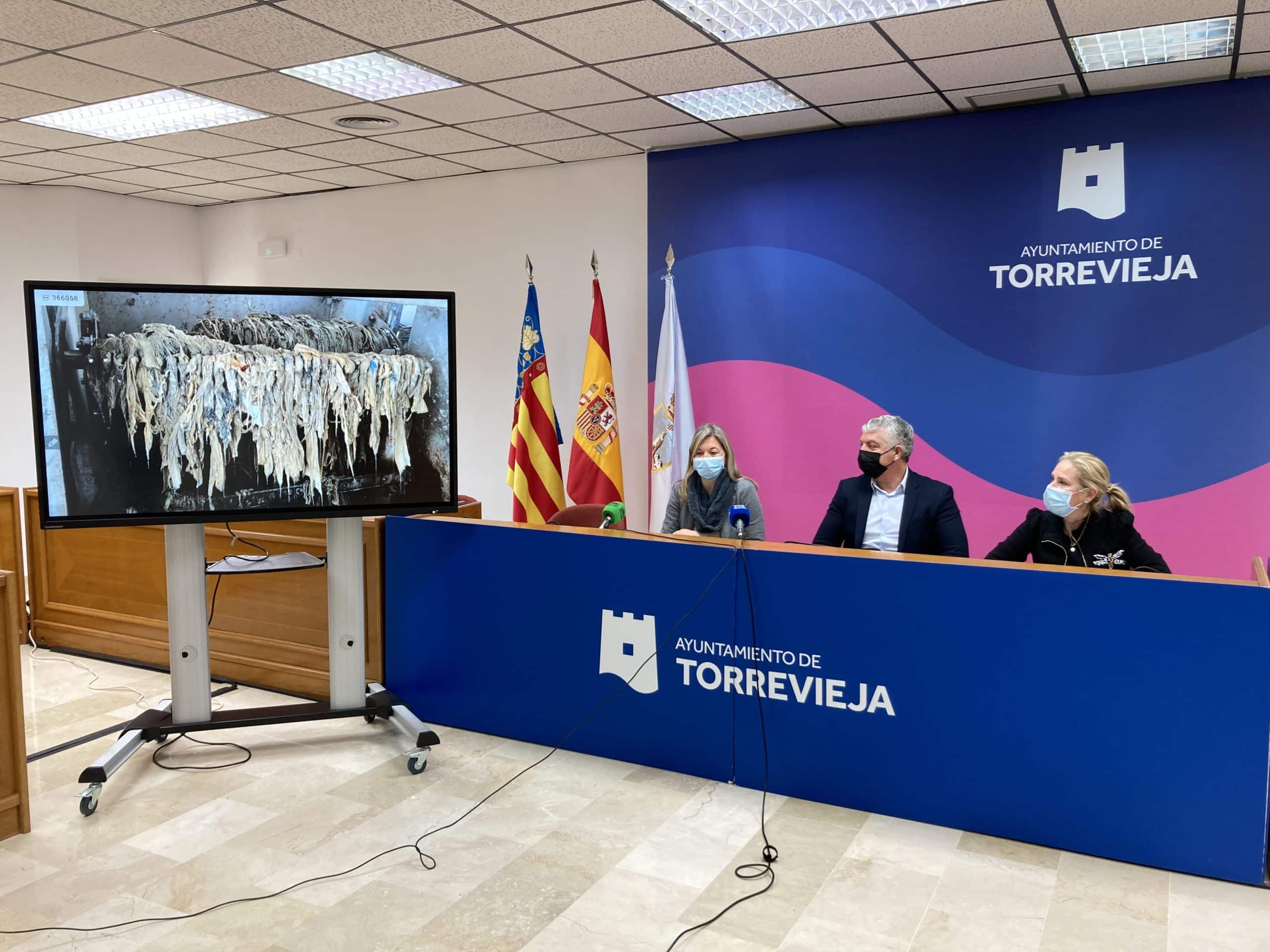Throwing away these elements implies a 15% increase in the cost of maintaining sewage and sanitation networks and infrastructures, which represents an additional cost of €500,000 per year in the municipality of Torrevieja.
In addition to these elements, the population throws other products down the toilet that cause serious problems in the purification processes and affect the environment, such as paints, oils, detergents, soaps, medicines or pesticides, among others.
The councillor responsible for the Integral Water Cycle in Torrevieja, Antonio Vidal, together with the deputy manager of AGAMED, Gemma Cruz, and the head of the Sewerage area of the mixed company, Dina González, have presented the awareness campaign called “El monstruo de las toallitas”, on the importance of correct practices and the proper use of bathroom moist wipes and other solid waste such as masks, gloves, cotton swabs, cigarette butts, etc. that can affect the operation of wastewater treatment plants (WWTP).
Every year, tons of waste end up in sewage networks and in treatment plants. Part of this waste that citizens throw down the toilet is not biodegradable and generates obstructions in these facilities. Likewise, this problem has been joined in recent years by the massive presence of masks and gloves.

In the last year, the treatment plant that collects wastewater from Torrevieja collected a total of 256 tons of waste, much of which corresponds to these elements.
Associated with these obstructions, AGAMED dealt with around 260 incidents in the pumping and in the sewage network during the last year.
Given this situation, Torrevieja council and AGAMED have decided to launch a campaign to make the population aware of the need to make proper use of the sewage network. Thus, the campaign contemplates the dissemination, through the media and social networks, of information to the population on this subject, so that it can reach all sectors.
In the case of wipes, for children’s use, make-up removers or for hygiene and body care, the problems generated involve the presence of skeins of textile fibers and plastics, which, together with many other residues improperly dumped by the toilet, clog the sewers; generating what at a social level has already been called “the monster of the sewers”.
Because, although many of these containers indicate that they are biodegradable products, they are not really easily disintegrated, since the time they take to degrade is considerably long.
The facilities most damaged by this fact, in addition to the networks through which water circulates continuously, are the sewage pumping stations, which require constant cleaning, with the consequent nuisance of odors and noise that this causes to the residents of the area where they are located. Also damaged are the gratings and roughing sieves of the treatment station, which collapse and break due to the arrival of the accumulations of wipes.
Throwing away these elements implies a rise of approximately 15% in the cost of maintaining the sewage and sanitation networks and infrastructures, including the management of the waste generated, which represents an additional cost of around €500,000 per year in the municipality of Torrevieja.
In addition to these elements, the population throws other products down the toilet that cause serious problems in the purification processes and affect the environment, such as paints, oils, detergents, soaps, medicines or pesticides, among others.





